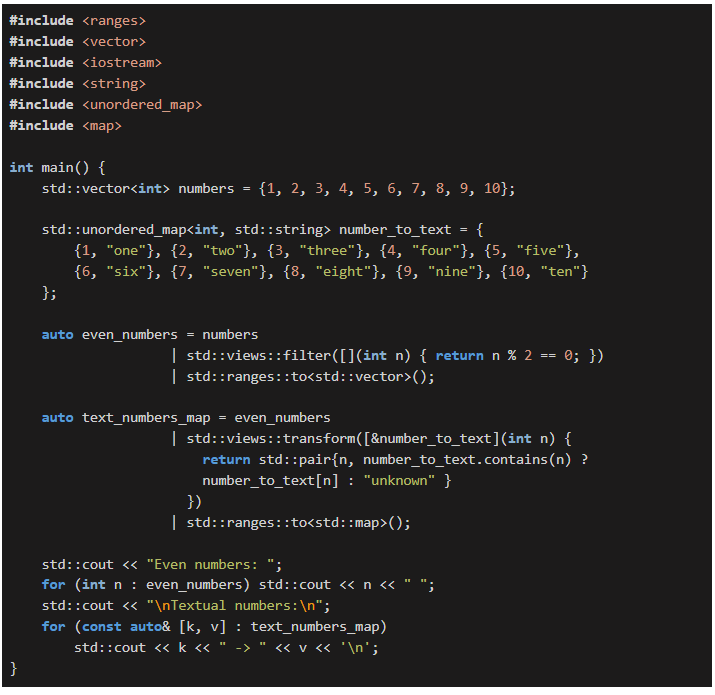C++26: A Placeholder with No Name -- Sandor Dargo

C++26: A Placeholder with No Name
by Sandor Dargo
From the article:
By convention, when we have a variable whose value we don’t want to use or care about, we often name it_. The problem is that with higher warning levels (-Wunused-variable), our compilation might fail because_is unused.
int foo() { return 42; } auto _ = foo(); /* error: unused variable '_' [-Werror,-Wunused-variable] */To avoid this problem, we must mark it
[[maybe_unused]].

 Since its introduction, the
Since its introduction, the  Sometimes, we all need a way to iterate over a container in the opposite direction. There are several ways to reverse-iterate a container, and in this article, we’ll explore them.
Sometimes, we all need a way to iterate over a container in the opposite direction. There are several ways to reverse-iterate a container, and in this article, we’ll explore them. In this article, you’ll see eight larger examples that illustrate the changes in C++23.
In this article, you’ll see eight larger examples that illustrate the changes in C++23.
 When tasked with diagnosing why a pointer passed through a pipeline emerged offset from its original value, I discovered an interesting culprit: the misuse of a wrapper function around
When tasked with diagnosing why a pointer passed through a pipeline emerged offset from its original value, I discovered an interesting culprit: the misuse of a wrapper function around  Back in the day, being a witch was considered a grave crime. Today, we’re diving into one of C++’s lesser-known spells: ADL (Argument-Dependent Lookup).
Back in the day, being a witch was considered a grave crime. Today, we’re diving into one of C++’s lesser-known spells: ADL (Argument-Dependent Lookup).